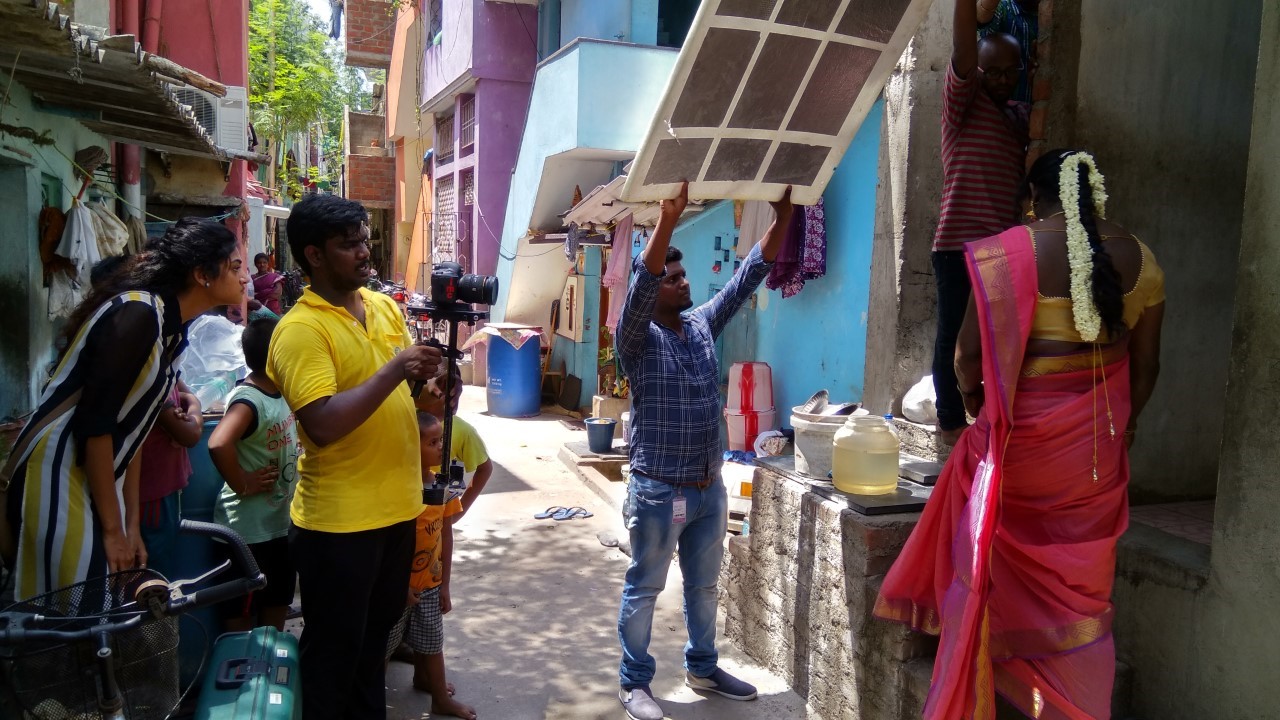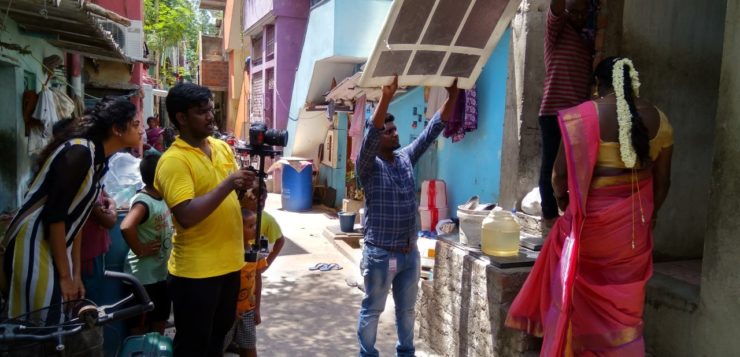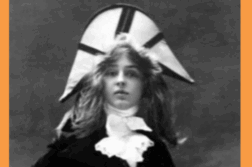
Worshiped as angels and treated as outcasts – how does this community fight bias, battles, and suicide and strive instead for a life of acceptance and dignity?
Hijras in the Mughal Empire (15-19th century) were in charge of the King’s palace, called to serve and run the harem. Today Hijra is also used to describe the matriarchal community where transgender people live together under the wing of a leader who typically takes on the role of a mother, helping her children thrive in the sex industry, panhandling, or in other menial jobs depending on the region.
“Hijra” in the Hindi language is an acceptable term for transgender people, but other Indian languages use different words to address trans people that are derogatory. In the Hindu community, Hijras are invited to weddings and baby showers to bless the newly married couple and ward off any evil. They sing, dance and offer blessings. The community believes that a Hijra is an angelic being. Except for the Hindu religion, other religions don’t glorify this ritual as it is not part of their culture.
Though Hindus consider Hijras to be holy, Indian society bans them as untouchables. The Indian government in many regions has allocated specific areas for their residence and, in some cities, built apartment complexes for their secluded living.
There is a stark contrast between trans people in the sex industry and the begging industry. And while one earns more in the sex industry, neither those who make a living begging nor those in the sex industry live with dignity. They are sentenced to a life without health-care, assets or human rights. This pushes them to have an aggressive approach to their dreams, wishes and wants. To live without succumbing to suicide, kidney failure, and mockery, they have to push past the glass ceiling that the country sets for them. Trans-people in India do not qualify for hormone treatments, mental health support or career training. Because of lack of access to health care and equal opportunity, a transgender’s tone, behavior, mindset and heart is always on the defensive, making them seem like monsters to the public.
The label of “outcast” can get tiring. They find no acceptance from their birth family, society and workplace. The constant facade of needing to be brave and push boundaries can get exhausting – and yet, there are individuals who have broken these barriers and fought to earn a living outside the sex and begging industries.
Growing up in India, I often saw trans people approaching my car, knocking on my window aggressively and forcing me to give them money. Once, I gave them a few large bills (they wouldn’t take small bills). They blessed me intensely, promising good health, wealth and beauty, and then proceeded to another car. I was taught not to engage with them and to deny alms as they can get violent when denied what they ask for. They are presented to be mysterious beings unlike any “regular” male or female. Because of this confused classification, many children and adults avoid trans people and treat them as a third gender in Indian society.
In 2014, India classified trans people – along with eunuchs and intersex people — as a third gender in law, neither part of the male or female sex. However, the trans community has underground connections to doctors, lawyers, activists, business people and influencers to help keep themselves alive. This is vital for their survival, ability to function in good health, and ability to thrive in their community (even if it means getting illegal care).
A few success stories include Manabi Bandopadhyay who, in 2015, was the first transgender person to complete her Ph.D. Shabi AKA M.K.Giri became Visakhapatnam’s first transgender soldier in 2016. Joyita Mondal became West Bengal’s first transgender judge in 2017. Sathyasri Sharmila became Tamil Nadu’s first transgender lawyer in 2018.
These trans people have gained successful lives of their own and have paved the way for others to choose life instead of suicide. Acceptance and dignity are essential to human living. They are human rights that every living breathing person inherits and deserves. When these freedoms are violated, a person’s identity is invalidated. No individual should have to fight for their survival. Though Indian society is now becoming more tolerant and knowledgeable about trans people, there is a long way to go to gain full and legal access to health care and equal integration into society. Religion and culture are heavy influences in reaching this goal.
 Sharon Angel is a dynamic, young leader and a voice for this generation. In her book, “The Courage to Identify Who You Are”, Sharon shares a blueprint for breaking the mold of cultural assimilation to discover one’s true identity and walk in it confidently. The book seamlessly led Sharon to start “The Courage To Identify” Podcast. Recognizing that we all have decisions to make on a daily basis but as we grow older it seems like these decisions are getting harder by the day. For a deeper understanding of a transgender life in India, watch Sharon’s documentary “Behind the Mask: Unveiling a Transgender Story”
Sharon Angel is a dynamic, young leader and a voice for this generation. In her book, “The Courage to Identify Who You Are”, Sharon shares a blueprint for breaking the mold of cultural assimilation to discover one’s true identity and walk in it confidently. The book seamlessly led Sharon to start “The Courage To Identify” Podcast. Recognizing that we all have decisions to make on a daily basis but as we grow older it seems like these decisions are getting harder by the day. For a deeper understanding of a transgender life in India, watch Sharon’s documentary “Behind the Mask: Unveiling a Transgender Story”





